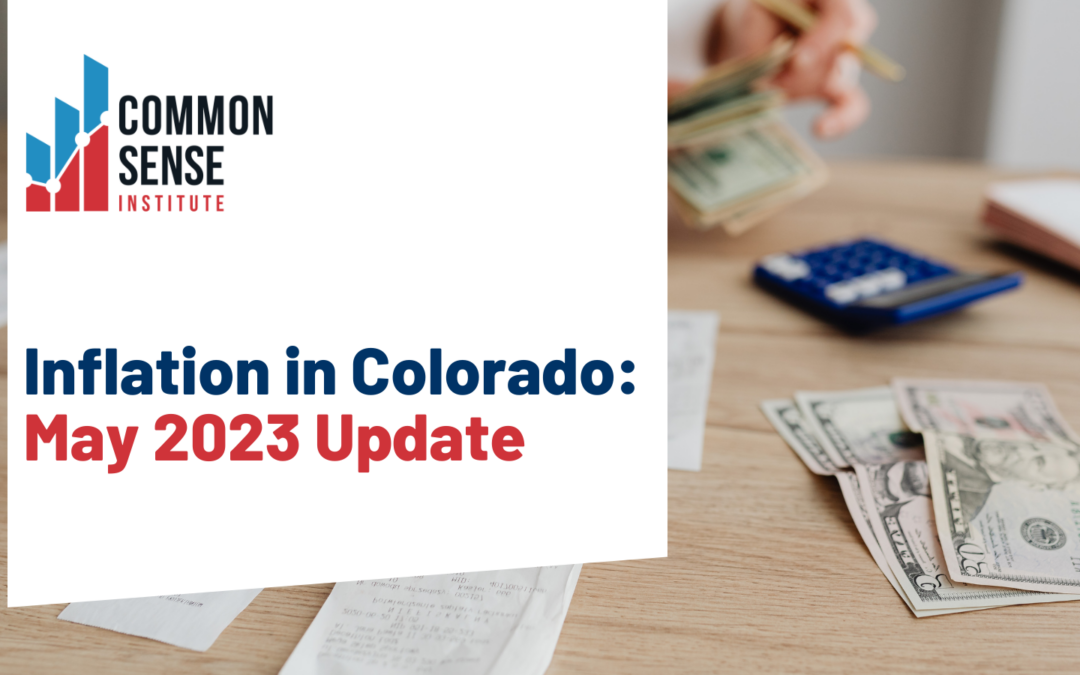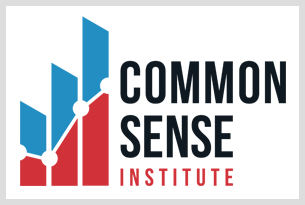Press Releases
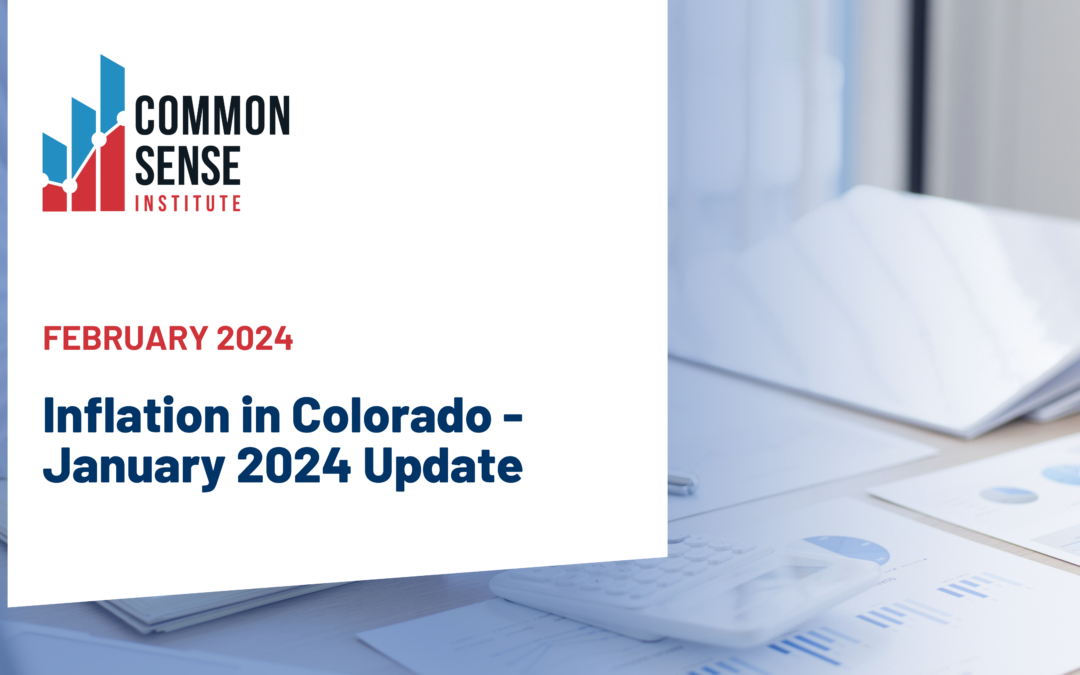
Inflation in Colorado – January 2024 Update
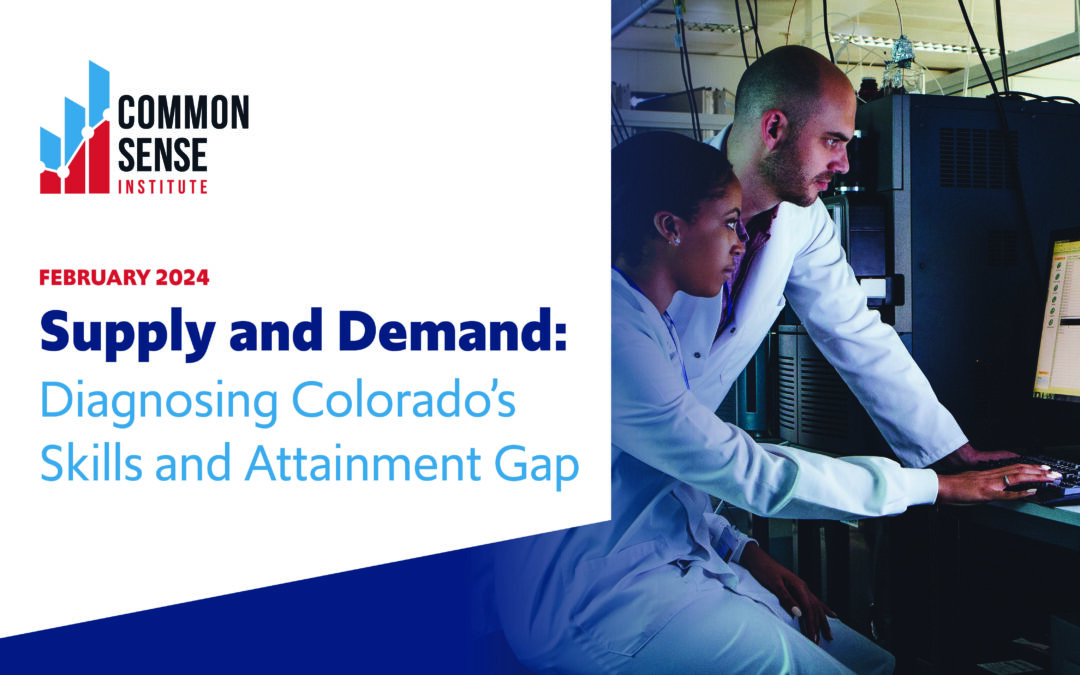
Supply and Demand: Diagnosing Colorado’s Skills and Attainment Gap
By 2031, 73% of Colorado’s jobs will require at least some postsecondary education, and currently 70.7% of Colorado adults currently qualify.[i] That number includes imported talent—people who attain higher education elsewhere and move to Colorado. At present, only 66.5% of the state’s adult population born in Colorado meets that standard—over 79,000 people short of 73%.
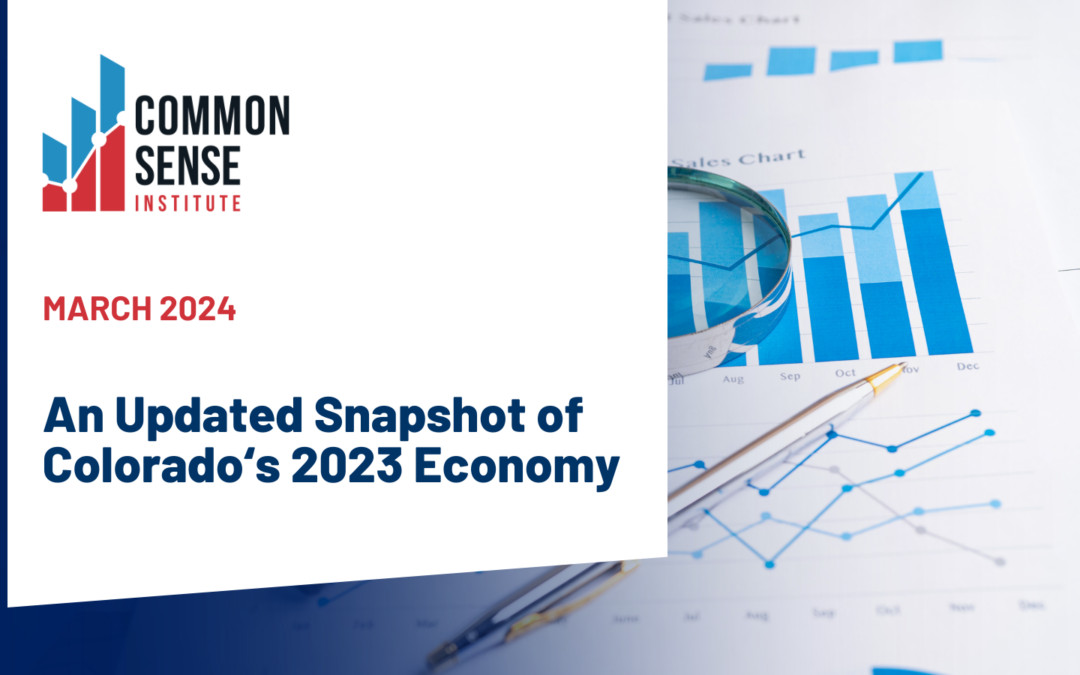
A Snapshot of Colorado’s 2023 Economy
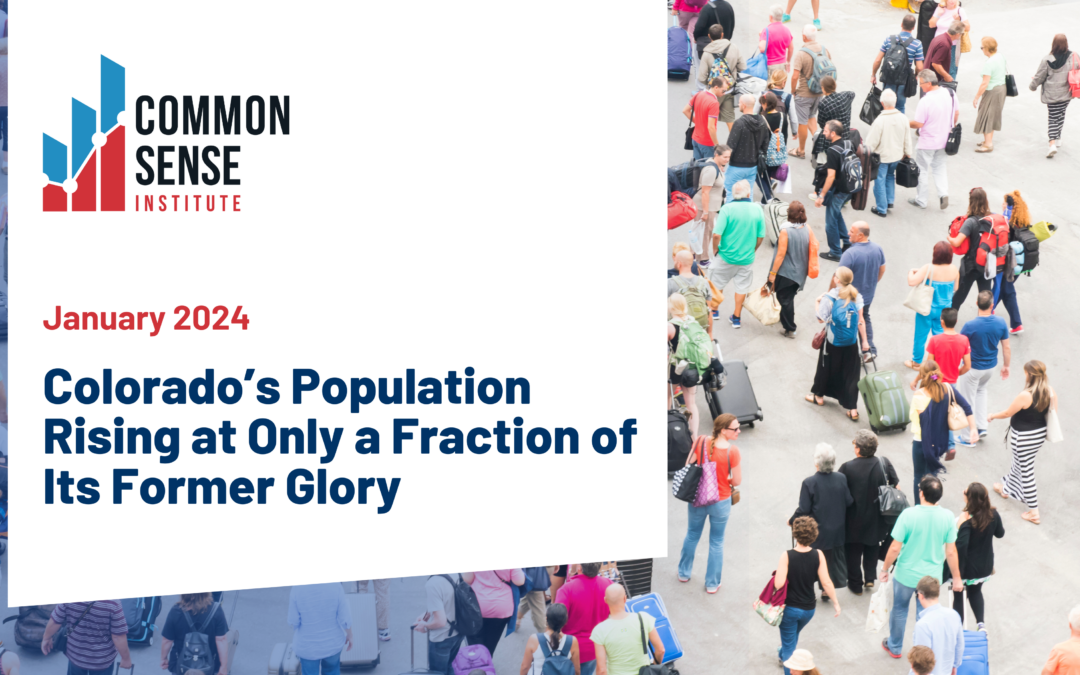
Colorado’s Population Rising at Only a Fraction of Its Former Glory
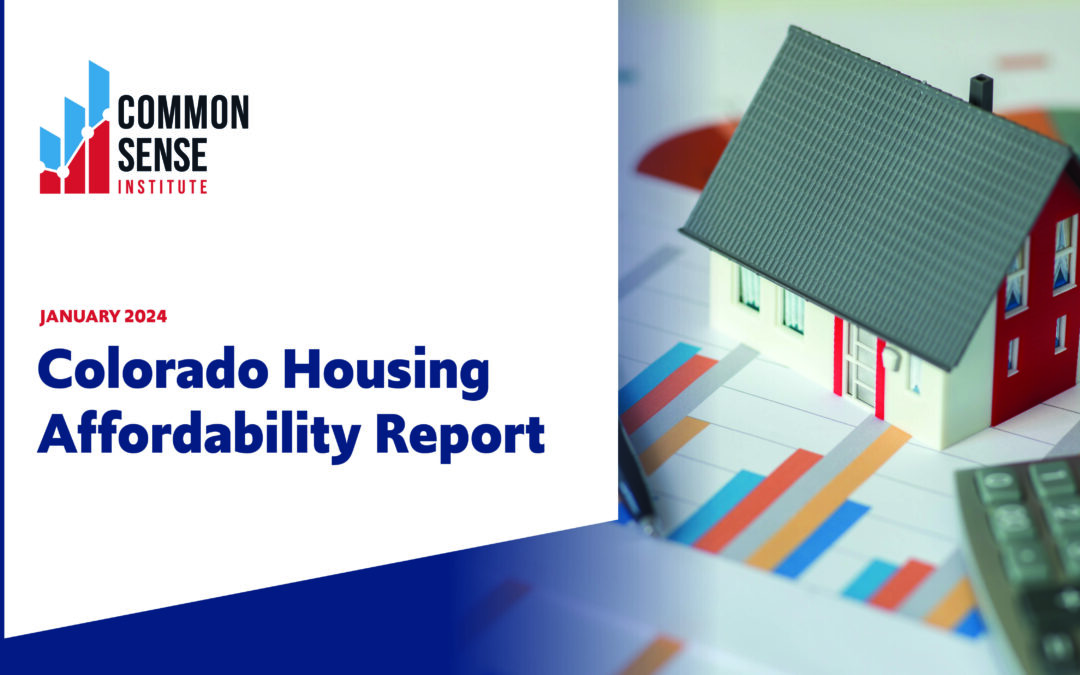
Colorado Housing Affordability Report

Colorado Jobs and Labor Force Update – December 2023 Update

Just How Much Relief Did the State Special Legislative Session Provide?
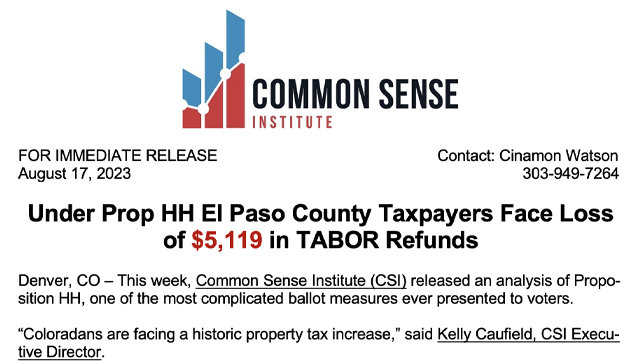
Under Prop HH El Paso County Taxpayers Face Loss of $5,119 in TABOR Refunds
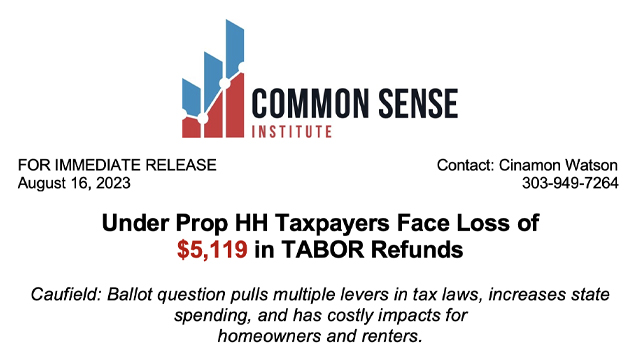
Under Prop HH Taxpayers Face Loss of $5,119 in TABOR Refunds
